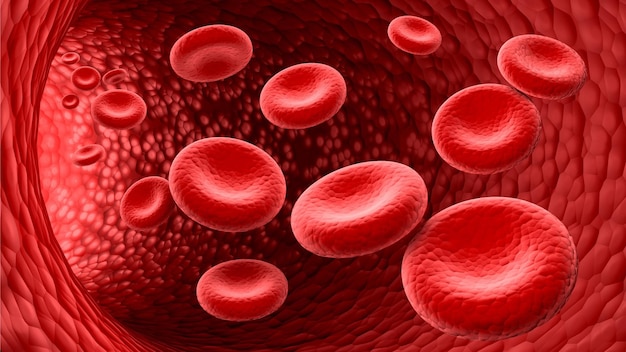Brief Overview of Blood In Stool
Blood in stool can be alarming, but understanding the common symptoms and causes can help you address the issue effectively. Here are some insights into what might be causing this condition and how to manage it.
Common Causes
Hemorrhoids, anal fissures, peptic ulcers, and polyps are frequent culprits behind blood in stool. Additionally, abdominal discomfort, cramping, and fatigue often accompany this condition. Avoiding meats, dairy, and processed foods can help reduce the occurrence of blood in stool. Factors like age, smoking, and alcohol use also increase the risk. Sometimes, spicy foods or seasonings can irritate your gastrointestinal (GI) tract, leading to blood in your stool. Certain foods can even cause a false alarm, making your stool appear bloody when it’s not.
Symptoms of Blood In Stool
Blood in your stool, also known as hematochezia, usually indicates an issue within your gastrointestinal or digestive tract. Signs that your GI tract may need attention include:
- Black or tarry stool
- Dark or bright red blood in stool
- Rectal bleeding
- Fresh blood on toilet tissue
- Abdominal discomfort
- Test results indicating blood in stool
- Fatigue
- Cramping
- Dizziness
- Paleness
- Shortness of breath
What Causes Blood In the Stool?
Blood in stool can result from various health conditions or reactions to food or medication. Occasional constipation is a common reason, as straining can create hemorrhoids and anal fissures. Hemorrhoids are swollen, irritated blood vessels prone to rupture, and can occur internally without symptoms until blood appears in the stool. Anal fissures, which are cuts or tears on the anus, often result from compacted stools or trauma, producing bright red blood on toilet tissue.
Other health issues that can cause blood in your stool include:
- Peptic ulcers
- Colitis
- Gastritis
- Esophagitis
- Mallory-Weiss syndrome (esophageal tears)
- Diverticular disease
- Crohn’s disease
- Celiac disease
- Esophageal varices (enlarged veins)
- Angiodysplasia (a small malformation of the gut)
- Tumors or polyps
- Colorectal cancer
Should I Be Worried About Blood In My Stool?
If you notice a significant amount of blood in your stool, it could indicate acute bleeding and a serious health condition. Symptoms of acute bleeding include a rapid pulse, reduced urination, weight loss, and low blood pressure. Excessive bleeding can lead to anemia or iron deficiency. Regardless of the cause, if you see blood in your stool, contact your healthcare provider immediately.
Food poisoning can also result in bloody diarrhea, and sensitivity to certain foods can cause inflammation and bleeding in your intestines. If you experience bleeding or abdominal discomfort after eating specific foods, they might be the cause.
Could Your Red Stool Be a False Alarm?
Certain foods like blueberries, beets, licorice, and tomatoes can make your stool appear red or black, leading to a false alarm. If you suspect food is the cause, avoid it for a few days and check if your stool returns to normal. If it remains bloody, consult your healthcare professional for an accurate diagnosis.
What Are the Risk Factors?
Age, smoking, and alcohol use are significant risk factors for gastrointestinal bleeding and bloody stools. Medications such as aspirin, anti-inflammatory drugs, and anticoagulants can also contribute. If you see blood in your stool and are on medication, it might be causing upper GI bleeding. Kidney and cardiovascular issues can lead to heavier bleeding, making stools more saturated with blood.
Natural Remedies for Blood In Stool
Natural remedies depend on the cause and location of the bleeding. Serious cases may require surgery, but for conditions like hemorrhoids, a diet free of meat, dairy, and processed foods can help. A high-fiber diet keeps stools soft and easy to pass. Avoiding caffeine and alcohol can reduce acid reflux and promote a healthier GI tract. A plant-based diet is beneficial for overall digestive health.
Healthy food choices include:
- Fruits like bananas, mangoes, and watermelon
- Vegetables like broccoli, beetroot, and cauliflower
- Herbs like milk thistle, ginger, and dandelion leaf
- Leafy greens like kale, Swiss chard, and spinach
- Apple cider vinegar
- Distilled or purified water
Probiotics help regulate healthy bacteria in your gut. Foods rich in probiotics include sauerkraut, kimchi, miso, tempeh, kombucha, and yogurt.
Preventing Blood In Stool
Preventing blood in stool involves understanding its cause. For instance, blood from an anal fissure is prevented differently than blood from medication. Certain foods, unhealthy habits, and external factors can irritate the GI tract or disrupt healthy gut bacteria. If you experience blood in your stool, evaluate your lifestyle and consult your healthcare provider.
Foods That Irritate the GI Tract
Certain foods can cause gastrointestinal bleeding, stomach discomfort, and other issues. Coffee, alcohol, and spicy foods can irritate your GI tract, while meat and processed foods can lead to constipation. Hard stools from constipation can cause straining, leading to hemorrhoids that may rupture and bleed.
If you experience blood in your stool, consider avoiding foods like:
- Peppers and spicy foods
- Fatty or fried foods
- Dairy-based foods
- Processed foods
- Sugary foods
- Wheat-based foods
- Energy drinks
- Caffeine
- Alcohol
Unhealthy Habits & External Factors
Tobacco significantly affects the GI tract, so eliminating smoking or chewing tobacco is beneficial. Stress can cause ulcers and acid reflux, so daily meditation can help balance your emotional state and improve digestion. Lack of exercise affects circulation, making it difficult for blood to carry essential nutrients throughout the body.
If you suspect an issue within your digestive tract, see your healthcare provider. A colonoscopy is a common preventative procedure to detect polyps or unhealthy growths, usually recommended for people over 50 and repeated every five to ten years. A healthy lifestyle, including a plant-based diet and regular exercise, is the best way to maintain a healthy GI tract and reduce the chances of blood in your stool.
Want to check your health? The next time you use the bathroom, take a look at your poop. It’s a good indication of your health. A quick glance at the Bristol Stool Scale can help you understand how healthy you are.



